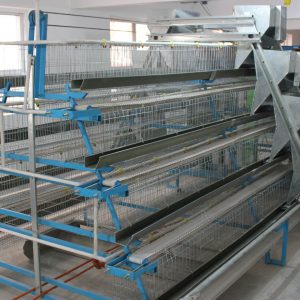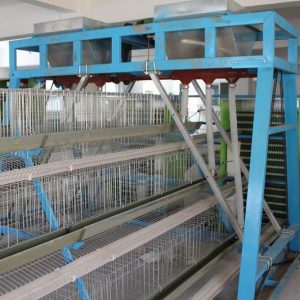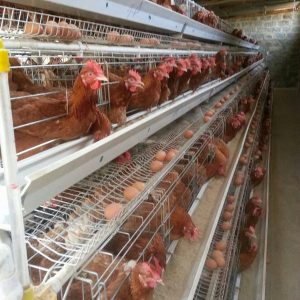
Do you know the time when chickens are most likely to get sick?
Half of all chickens are raised during the day and half of the time at night. However, after a busy day, the night is the most tiring time of the day. We should rest and sleep well. Many farmers go to the chicken coop for a circle. Go back to bed and sleep. We must know that 90% of the direct cause of chicken disease is the omission of night management of chickens. So, what should we do at night?
1. Pay close attention to the distribution of chickens: As a chicken breeder, you must learn to watch the temperature of the chickens. Not only pay attention to the numbers on the thermometer, but also see whether the chickens are evenly spread out, whether there are mouths panting, and the proportions In this way, the activity situation is how to wait to determine whether the temperature is appropriate and whether it needs to be adjusted.
2. The smell of the chicken house, see the ventilation: some farmers are afraid that the chickens will be cold, so they seal the chicken house to sleep, but the smell of the chicken house is very easy to accumulate at night. When the smell of the chicken house is too strong, the chicken is very It is easy to get respiratory diseases and then induce other diseases. Therefore, it must be ventilated in time.
3. When the chickens are resting at night, the chicken house is relatively quiet, and subtle changes can be heard clearly. Therefore, when watching chickens at night, pay more attention to the changes in the respiratory tract of the chickens, and accurately understand and judge the respiratory tract of the chickens The development of the situation is improving so that the medication plan can be adjusted.
4. Be good at observing, make early detection and early administration of medicine, less trouble; for example, carefully observe the feces to understand the intestinal condition of the flock, and respond in time to reduce losses. Of course, this job can also be done during the day.
5. After 3 o’clock in the morning, this is the time when people are the most tired and sleep the most. For us who stay up late to watch the chicken, this time is often the most difficult time. At the same time, this is also the time when the outdoor temperature is lowest. Therefore, during this time period, we must pay attention to the heat preservation in the chicken coop. Once the temperature drops, immediately turn on the heat preservation equipment for heating.
6. Drinking water, medication, and feeding are all tasks that must be done at night and cannot be neglected. The material should be fed less frequently, and the material barrel should not be filled up at one time at night.
7. Sleeping at night is relatively familiar, and the general weather changes will not be noticed, but the night weather changes are the most frequent, which has a considerable impact on the chicken house and must be very sensitive to this. Therefore, we must pay attention to the weather forecast, keep track of rain, snow, wind, etc., to avoid damage to the flocks caused by stress. .
As chicken farmers, we have tried our best to take care of the chickens during the day, but we cannot relax the management of the chickens at night. Of course, this does not require our chicken farmers to turn around 24 hours a day, just suggest that we chicken farmers do it. While good night management, you must not neglect night management. Of course, there are many, many projects and key points in night management. This is even more necessary according to the different ages and different stages of the chickens, combined with all-day management.



